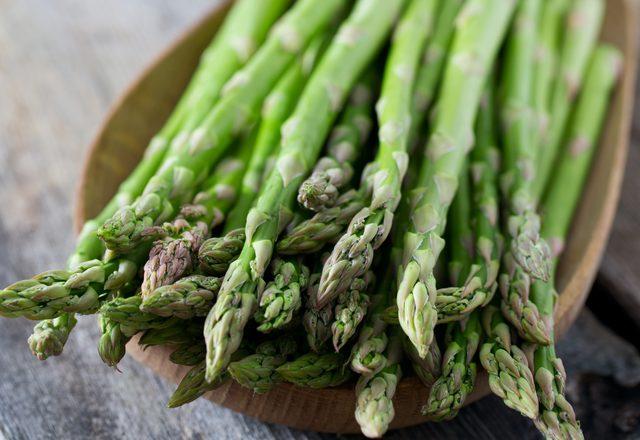Asparagus is a valuable food source that has been loved since the Ancient Greeks and Romans. Asparagus, which is not among the vegetables consumed frequently today, contains many vitamins and minerals. The benefits of asparagus, which are generally consumed by steaming and boiling, do not end with counting. Those who hear the benefits of asparagus try to consume this miraculous vegetable every week.
BENEFITS OF Asparagus
FIGHTS CANCER
It was found in a study that saponin components in asparagus, which are thought to be beneficial in alleviating the problems caused by cancer, are effective in the death of cancer cells. According to research, it has been stated that it inhibits the growth of cancer cells. Yet another ingredient, sulforaphane, has an anti-cancer effect under investigation. The fact that asparagus is a decoction of folate may make it a risk-reducer against cancers of the colon, pancreas, and esophagus. In short, it should be known that asparagus is a supporter in the fight against cancer.
HELPS RELEASE KIDNEY STONES
Thought to protect the urinary tract, including the bladder, kidneys, and urethra, asparagus does this by being a green vegetable. This vegetable, which has antibacterial properties, is effective in preventing the growth of bacteria that cause infections. When you think of asparagus, it comes to mind as a diuretic. It is important to prevent urinary tract infections. With its diuretic properties, asparagus is a food that should be consumed to clean the wastes in the kidneys and to prevent kidney stones.

FIGHTS INFLAMMATION
Its powerful antioxidants make asparagus strong at fighting inflammation. Asparagus is also seen as a warrior of inflammation that can lead to heart disease. Thanks to its anti-inflammatory properties, asparagus is good for back and headaches, as well as rheumatism and gout problems.
PROTECTS HEART HEALTH
Vitamin K is essential for heart health. It helps to prevent hardening of the veins while ensuring blood clotting. At this point, it plays an important role in lowering blood pressure. With its soluble fiber structure, it becomes a healthy food choice against cardiac problems. Fiber should be consumed to maintain cholesterol levels. In addition, thiamine, a type of B vitamin in asparagus, balances the amino acid homocysteine levels. Again, folate has an effect on lowering the risk of heart disease.

STRENGTHENS THE BRAIN
Vitamins C and E are the two most powerful vitamins to reduce the risk of Alzheimer’s. It has been tried to be proven by research that it prevents cognitive impairment and regression in elderly people. The folate in asparagus has a mood-boosting and supportive effect against nervousness. It is also said to help treat depression. Studies reveal that low folate paves the way for depression. Folate can also help with epileptic seizures.

SUPPORTS DIGESTION
Undoubtedly, asparagus, which is a fibrous vegetable, facilitates the breakdown of nutrients in the intestines. Inulin fiber improves the digestive process. Asparagus, which is a water reservoir rich in fiber, is effective in preventing constipation. Being a source of prebiotics also makes asparagus a superfood. Prebiotics feed the good bacteria in the intestines and balance the good and bad bacteria. Bloating is one of the most common digestive problems. As a good diuretic, asparagus can also be helpful in reducing bloating by helping to expel excess water.

STRENGTHENS BONE HEALTH
Weak bones are linked to vitamin K deficiency. A glass of asparagus provides more than half of your daily vitamin K needs. Vitamin K is also important for the absorption of calcium in the body. It plays a role in protecting bone health and preventing osteoporosis by preventing the excretion of calcium with urine. It provides bone mineral balance and maintains bone density. The iron in asparagus strengthens bones and joints. It also contributes to bone health by increasing calcium absorption with its prebiotic structure.
PROTECTS THE IMMUNE SYSTEM
Glutathione in asparagus has a destructive effect on carcinogenic substances. Glutathione is a compound that has an important function in the immune system. In addition, with the prebiotics in asparagus, the immunity is strengthened and the battles against diseases such as colds and flu can be won more easily. Another feature of asparagus that has a say on immunity is its richness of antioxidants. Its B vitamin content also makes asparagus an energizing food. Thanks to fiber, blood sugar is balanced.
BALANCES BLOOD SUGAR
Asparagus, which is successful in maintaining blood sugar balance, helps the body absorb glucose by increasing insulin production.
INCREASES FERTILITY AND EGGS QUALITY
As a source of folate, of course, it helps the pregnant woman. Folate ensures the development of the fetus, reducing the risk of birth defects. Pregnant women should get at least 400 mcg of folate per day. Folate is also important in fertility. Glutathione content improves fertility and egg quality.

IMPROVES THE QUALITY OF VISION BY PROTECTING EYE HEALTH
Vitamin A helps the retina absorb light. This directly affects eye health. As an antioxidant, asparagus is protective against problems such as age-related macular degeneration (cataract). Lutein and zeaxanthin antioxidants protect against cataracts, while vitamin E improves vision quality.
PROVIDES SKIN BEAUTY
Asparagus is also important in skin cleansing and acne treatment. Vitamins C and E provide an improvement in skin tone. Vitamin C especially moisturizes and nourishes the skin.
